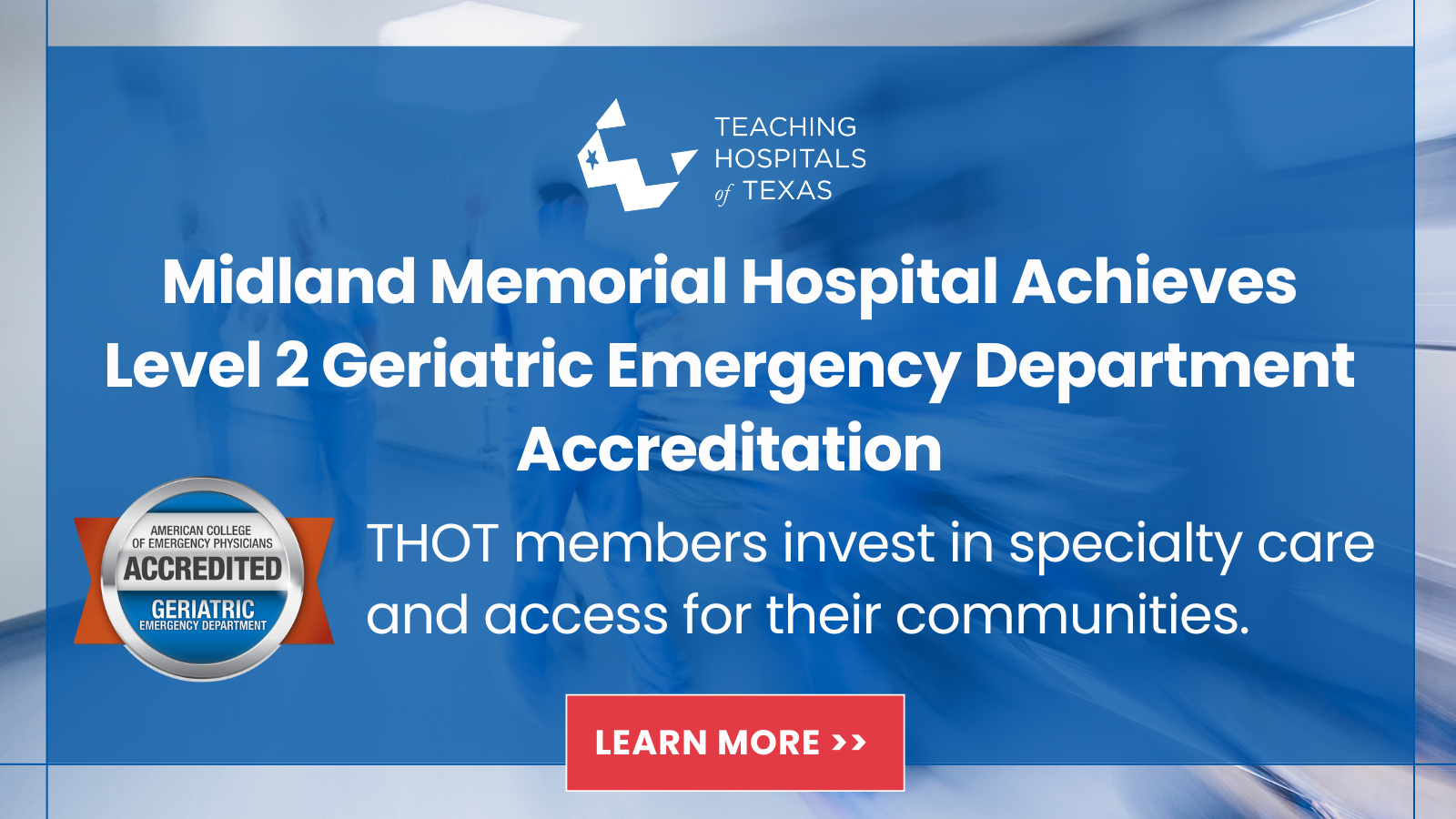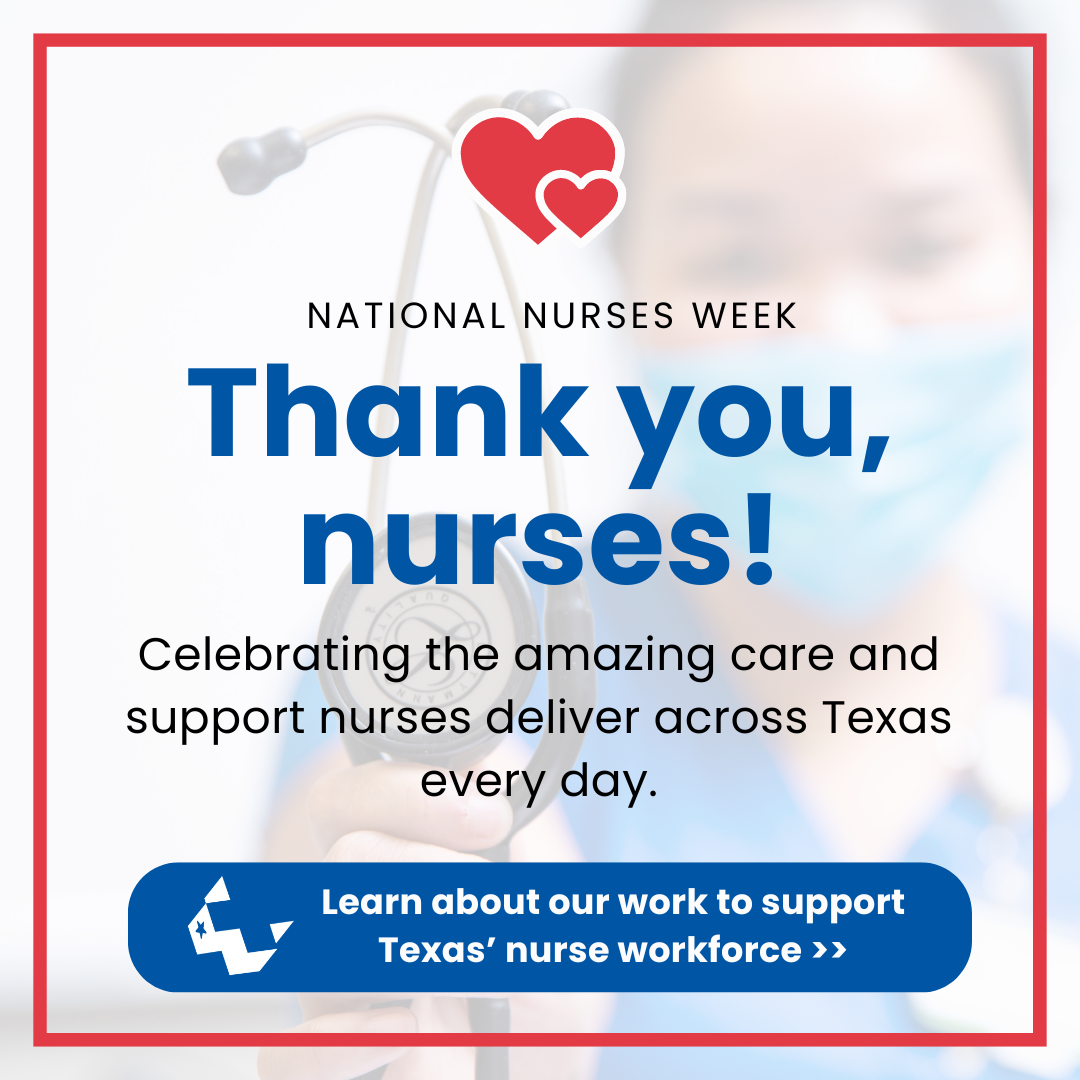Approval means private and public hospitals can receive enhanced payments from two THOT-developed programs.
In a victory for access to care for the state’s more than 5 million Medicaid enrollees and for physician education in the state, the Centers for Medicare & Medicaid Services on August 15 approved two state plan amendments to allow additional Medicaid payments to non-government-owned hospitals.
Teaching Hospitals of Texas developed and proposed to the Texas Health and Human Services Commission in 2017 and 2020 respectively, supplemental Medicaid Graduate Medical Education (GME) payments and enhanced payments through the Hospital Augmented Reimbursement Program (HARP) for care provided in the Medicaid fee-for-service program for both public and private hospitals. However, CMS initially approved the programs only for public hospitals because of concerns about the method of finance for the non-state share of the payments.
“Teaching Hospitals of Texas has long prioritized sustainable funding and expansion of GME clinical training opportunities for physicians,” said Maureen Milligan, CEO, Teaching Hospital of Texas. “Physicians who receive their clinical training in Texas are more likely to practice in Texas, and as our state continues to be an attractive place for relocation, we need more physicians to care for our growing population.”
Texas’ Medicare GME funding is lower than most other states, especially those in the Northeast. The approved Medicaid GME program helps offset some of the hundreds of millions of dollars in unfunded clinical education costs shouldered by Texas’ teaching hospitals that have historically provided GME to support Texas’ health care workforce.
The HARP program likewise helps Texas by supporting rates for Medicaid patients eligible for and seeking care outside of Texas’ Medicaid managed care programs. Texas created supplemental programs to support Medicaid managed care rates, but care provided outside managed care was reimbursed at lower levels penalizing hospitals providing that care and potentially reducing access. The HARP program now makes supplemental payments available for services provided to those patients, ensuring improved access for all with more-sustainable rates.
With the U.S. District Court for the Eastern District of Texas granting the state’s request for an injunction on June 30 to prevent CMS from enforcing its February informational bulletin to prevent redistribution of Medicaid payments among private providers, CMS’ objections to the state plan amendments for private hospitals were no longer valid.
The August approval of the two state plan amendments includes:
- $875 million through HARP for private hospitals that provide inpatient and outpatient services for Medicaid enrollees. Approval is retroactive to October 1, 2021. This program supports increasing Medicaid fee-for-service rates up to estimated Medicare payment levels.
- $109 million in annual Medicaid GME payments to support non-government-owned hospitals that operate state-approved medical residency training programs. Approval is retroactive to April 1, 2019.
“With these approvals, more hospitals can achieve their teaching and care missions for more Texans,” added Milligan. “We appreciate the continued support of Governor Abbott and our state and federal elected officials, as well as the great work by Texas Health and Human Services leadership and staff to make the case for supporting access to care across the state and for growing our physician workforce.”




